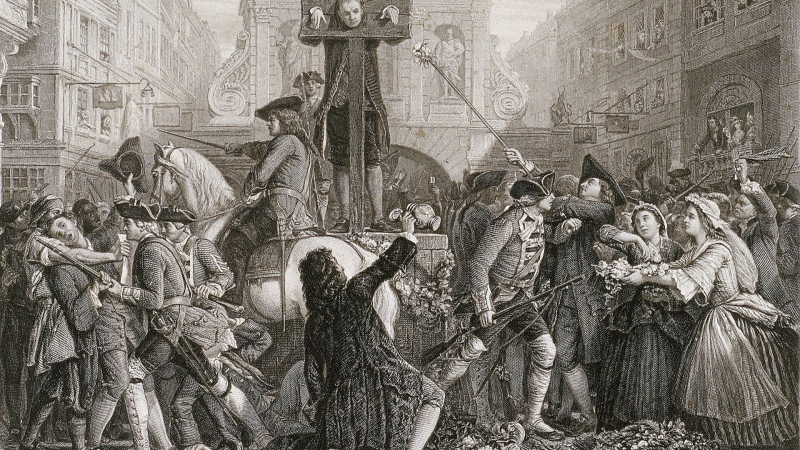Daniel Defoe Was Put On A Pillory For His Pamphlets

After William III's death in 1702, Queen Anne became ruler and launched a campaign against nonconformists (Protestant Christians who did not "conform" to the leadership and practices of the established church were known as nonconformists in the history of the English church) causing yet another upheaval in political affairs. "The Shortest-Way with the Dissenters; Or, Proposals for the Establishment of the Church", a pamphlet Defoe published in December 1702 that purported to argue for their eradication, made him an obvious target and led to his arrest and imprisonment in a pillory on July 31, 1703.
He criticized the English religious dissenters in this booklet. He was accused of sedition, and because of his writing, he was convicted. The court mandated that as punishment, he be chained to a pilgrim and released in front of a large crowd for public humiliation. The mob did not taunt or hurl stones at him when he was set free to be humiliated in front of others in a pillory. Due to the success of his book, Hymn to the Pillory, they showered him with flowers and yelled slogans in his support. Some academics dispute this occurrence, but according to John Robert Moore, Defoe was the only person in Britain to enjoy such widespread adulation during a mock trial.







